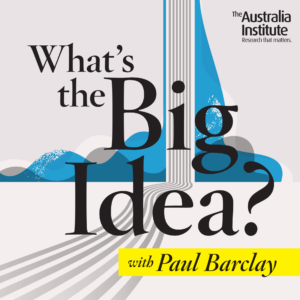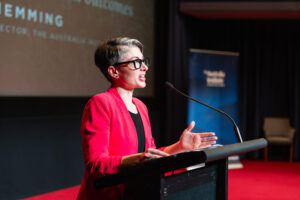Glasgow Part 2 and Australia’s fossil fuel fraud
For the first time ever at a UN Climate Conference, fossil fuels are being tackled head-on at Glasgow COP26. But Australia has plans to massively expand gas and coal projects. If Australia succeeds, the climate loses.
In this episode we’ll update you on the latest news from Glasgow COP26, as well as the latest research on Australia’s plan to massively increase gas and coal projects, using carbon capture and storage – which has a long track record of failure. Join Polly Hemming and Mark Ogge from the Australia Institute’s Climate & Energy team for a deep dive on climate.
This was recorded on 9 November 2021 and things may have changed since recording.
australiainstitute.org.au // @theausinstitute
Host: Ebony Bennett, Deputy Director at the Australia Institute // @ebony_bennett
Guests:
Polly Hemming, Advisor, Climate & Energy program // @pollyjhemming
Mark Ogge, Principal Advisor, Climate & Energy program // @markogge
Producer: Jennifer Macey // @jennifermacey
Theme Music: Pulse and Thrum; additional music by Blue Dot Sessions
Related research
Between the Lines Newsletter
The biggest stories and the best analysis from the team at the Australia Institute, delivered to your inbox every fortnight.
You might also like
We need political courage, not caution | Polly Hemming
When it comes to solving the biggest national problems, a bit of courage leaves political caution for dead. Now’s not the time for politeness.
Why a fossil fuel-free COP could put Australia’s bid over the edge
When the medical world hosts a conference on quitting smoking, they don’t invite Phillip Morris, or British American Tobacco along to help “be part of the solution”.
Integrity at home shapes global outcomes – Polly Hemming | Climate Integrity Summit 2025
Despite frequent claims that Australia is ‘too small to make a difference,’ historical evidence demonstrates our nation’s outsized role in influencing international norms and policies.





